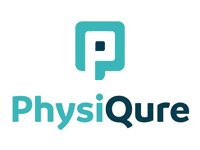You probably know that the digitalization in healthcare can take place overwhelmingly. Adapting to the digital age also calls for a flexible and risk-taking approach.
The positive effect of technology is the digital transformation of healthcare. Telemedicine, AI medical devices, and electronic health records for Blockchain are a few examples of digital healthcare transformation.
Here, innovation main objective is:
- Ease the work of doctors
- Systems optimization
- Excellent patient care
- Minimize human error and reduce costs through fantastic web and mobile experience
Unfortunately, when it comes to implementing digital strategies, the healthcare and pharmaceutical sectors lagged behind. Just seven percent of medical and pharmaceutical companies went digital, compared to 15% of businesses in other sectors.
Have look at healthcare digital transformation in 2020:
Treatment effectiveness now becomes transparent
Major pharmaceutical companies are no longer the sole provider of information. Latest developments in digital transformation provide unprecedented access to information about the impact of a healthcare plan or pharmaceutical product.
Visualization of the data to improve accessibility
Visualization of data is not just aesthetics; it is based on real results and findings from the industry. The way individual access and process information is changing. That means how information is communicated and exchanged is crucial to the organization’s success.
Patients have the power to participate actively in their care
Medical practitioners will continue to represent patient-pharmaceutical relationships. The digital trends show that patients are becoming more involved with their medical treatment plans.
Internet Treatment 24/7
Ten years ago, if you tell to people that a video game like device can reduce your pain, you would have attracted a lot of blank stares.
VR is used not only to relieve pain, but also anxiety to post-traumatic stress disorder and stroke.
The simulations of virtual reality are used by physicians and residents to develop their abilities or schedule complex operations.
Improving electronic health records with Blockchain
Block chain recently acquired a poor reputation due to the collapse of the cryptocurrency bubble. The average citizen now thinks of Blockchain as a mysterious, confusing idea that doesn’t affect his life. In reality, this technology will soon play an important role in the quality and protection of your electronic health records.
Block chain is an effective tool in healthcare to prevent data breaches, improve the accuracy of medical records and cut costs.
Bottom line:
Pharmaceutical and healthcare organizations need to build more personalized patient experience to thrive in this modern digital world. It retains them through open data visualization and real-time attention.
They may choose to build applications that monitor patient biophysical statistics or create touch points during the entire care process. An rise in digital healthcare technologies would impact company efficiency.
To keep companies thriving and prosper, businesses need to continue to generate innovations and adopt digital strategies in order to leverage their skills and strengths.
